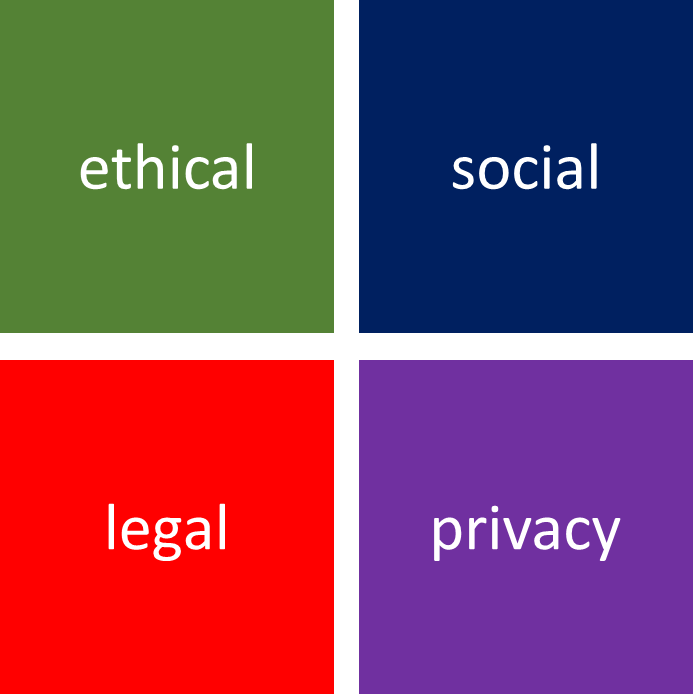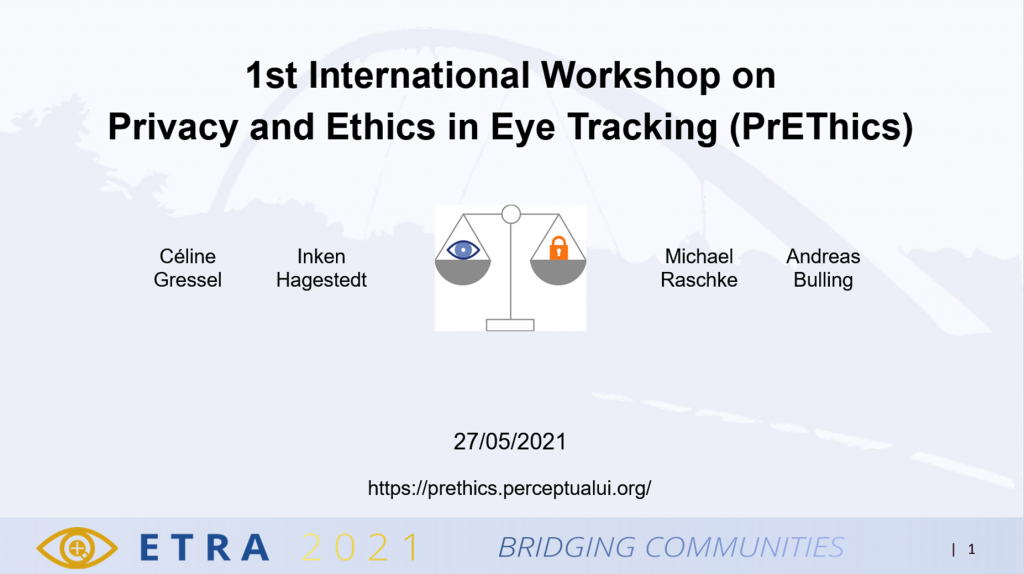Proposal for a research program for ethical, legal and social implications of eye tracking
From Michael Raschke
In one of our recent blog articles we argued that eye tracking will be one of the main enablers for a new market of virtual and augmented reality applications in our daily life’s. The upcoming combination of new hardware solutions, algorithms from artificial intelligence and big data technologies will change the way how humans interact with their environment in a fundamental way. User interfaces will be personalized and machines will empathically interact with their users.
On the way towards this new human-machine interaction paradigm, fundamental questions have to be answered on how we want to use this new technology. At 2018, during a Dagstuhl seminar called “Ubiquitous Gaze Sensing and Interaction” I motivated together with others to begin a discussion about ethical and privacy implications of eye tracking. I was so happy that such a great number of scientists at this seminar also found it very important to discuss this topic.

ELSI means ethical, social, legal implications. In our discussion we learned that technical aspects about privacy also play a very important role.
For me, the question in 2018 was how next steps might look like to efficiently investigate the main issues of pervasive eye tracking. Also, I thought about how we could organize an effective group of researchers, engineers and manager from sciences and industry to find solutions. An inspiration for me was the book “Life 3.0” written by Max Tegmark which I read during these days. Max Tegmark is a MIT professor, who is very concerned about the fast development of Artificial Intelligence. Following his ideas, I started to think about how future steps might look like to study the implications for our society.
In 2018, I sketched a short research program with five points (see fotenote 1):
- First, we connect and bring together all relevant players in the community to discuss ethical implications and data privacy issues. Scientists from domains like biometric measurement and genetic research will be asked about challenges in their fields, available solutions, and guidelines. During this first step, the main goal will be to raise awareness regarding possible implications of eye tracking technology in the future society.
- Second, we bring together a small group of key players to conduct further steps.
- Going from this first connection of people from science and tech, the organizer group will invite other disciplines, such as philosophy, social sciences, and bio sciences to the discourse.
- A milestone could be a dedicated event, where the social, ethical and data privacy implications will be discussed. A result of this first milestone will be a first draft of tasks, which have to be done towards the development of eye tracking applications that have a positive impact on the society.
- The next step is to create a scientific program to study the implications of eye tracking on the society in more detail. During this creation, a manifest will be written and frequently updated to provide international guidelines of using eye tracking for the society. This manifest shall be signed by all relevant players in science and in tech community to underline its importance.
Over the next three years, I was so happy to see that other members of the eye tracking community also felt the urgency of starting a profound analysis in this field. We established a task force in 2019 and organized a first panel discussion at ETRA in Denver. In 2021, we finally held the “1st International Workshop on Privacy and Ethics in Eye Tracking (PrEThics)” workshop at ETRA 2021 after we had to cancel our first trial due to COVID in 2020.

1st International Workshop on Privacy and Ethics in Eye Tracking (PrEThics) at ETRA 2021
This year we will organized the “2nd International Workshop on Privacy and Ethics in Eye Tracking (PrEThics)” virtually at ETRA 2022. I am so delighted to be part again of this great group of interdisciplinary scientists from ethics and social sciences, security and HCI with Céline Gressel from University of Tübingen, Rebekah Overdorf from EPFL, Inken Hagestedt from CISPA Helmholtz Center for Information Security, and Andreas Bulling from the University of Stuttgart.
Like last year the workshop will follow an intense schedule with breakout groups, presentations, and discussions. However, in contrast to last year, where we have been focused more on the basic aspects of ethic, legal, and social implications, this year we are planning to work out concrete solutions for different application fields.
Fotenote 1: Which I later published in the Dagstuhl Proceedings together with Enkelejda Kasneci from the University of Tübingen in the seminar report “From the lab to the real world? – Eye tracking grows up”
